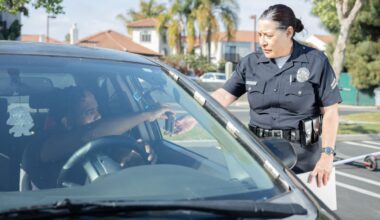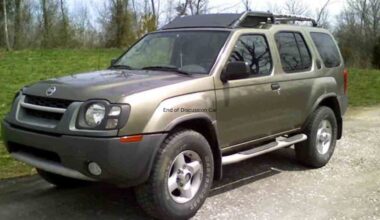Where Can I Sleep in my Car if I’m Homeless?
1. 24-Hour Retail Store Parking Lots:
Navigating homelessness can be incredibly challenging, especially when it comes to finding a safe and legal spot to park and rest. Fortunately, many 24-hour retail stores understand this struggle and often permit overnight parking in their lots.
These establishments offer a sense of security with their well-lit and monitored environments, providing individuals with a temporary refuge where they can park their cars and find some rest amidst their hardships.
2. Rest Areas and Travel Plazas:
Traveling along highways can be exhausting, particularly for those experiencing homelessness. However, rest areas and travel plazas provide a glimmer of hope by offering designated parking spaces for travelers in need of rest.
These areas serve as a temporary refuge, providing individuals with a safe spot to park their cars and recuperate before continuing their journey.
3. Church Parking Lots:
In times of hardship, some churches extend their compassion by allowing individuals to park in their lots overnight. Recognizing the struggles faced by those experiencing homelessness, these churches provide a haven amidst difficult circumstances.
By opening their parking lots to car dwellers, churches offer a sense of community and support to individuals in need.
4. Community Centers or Shelters:
Certain community centers or homeless shelters go above and beyond traditional shelter services by offering parking spaces for car dwellers.
Understanding the importance of safe accommodations for individuals living out of their vehicles, these organizations provide a secure spot where individuals can park and rest without fear of harassment or danger.
By recognizing the unique needs of car dwellers, community centers and shelters offer a lifeline to those facing homelessness.
5. Campgrounds or RV Parks:
While typically intended for recreational vehicles, campgrounds, and RV parks may welcome car dwellers seeking a safe place to park and sleep for the night.
These areas provide a peaceful and secure environment, often equipped with amenities such as restrooms and showers.
Despite the intended audience, campgrounds and RV parks offer a welcoming space for individuals experiencing homelessness, allowing them to find temporary refuge and rest amidst their struggles.
Where is the Safest Place to Sleep in your Car?
Determining the safest place to sleep in your car depends on various factors, including the location’s level of security, visibility, and legality. While safety is subjective and can vary based on individual circumstances, here are some considerations for finding the safest place to sleep in your car:
- Well-Lit Areas: Opt for well-lit locations with good visibility, as they deter criminal activity and provide a sense of security. Well-lit areas also make it easier for passersby to notice any potential issues and offer assistance if needed.
- Low Crime Areas: Research neighborhoods with low crime rates and minimal incidents of vandalism or theft. Avoid areas known for high crime rates or suspicious activities, as they pose a higher risk to your safety.
- Legal Parking Spots: Choose parking spots where overnight parking is legal and permitted. Look for designated overnight parking areas, rest stops, or establishments like 24-hour retail stores or truck stops that allow overnight parking.
- Public Locations with Surveillance: Consider parking in public locations with surveillance cameras or security patrols, such as hospital parking lots, hotel parking lots, or designated safe parking programs. These locations offer added security and may deter criminal activity.
- Secluded but Visible Spots: Look for secluded parking spots that are not isolated but still offer some degree of privacy. Avoid parking in isolated or remote areas where assistance may be limited in case of emergencies.
Can you Sleep in your Car in LA?
Yes, it is legal to sleep in your car in Los Angeles, California, under certain conditions. In 2014, a federal court ruled that banning people from living in their vehicles is unconstitutional unless adequate alternatives are provided. However, there are specific regulations and restrictions that individuals must follow to legally sleep in their cars in LA:
- Parking Restrictions: LA has parking restrictions in certain areas, including overnight parking bans in residential neighborhoods and restricted parking zones. It’s essential to check local ordinances and signage to ensure compliance with parking regulations.
- Public Safety Concerns: Sleeping in your car is prohibited in certain locations where it poses public safety concerns or interferes with traffic flow. Avoid parking in areas designated as hazardous or obstructive, such as fire lanes or emergency exits.
- Private Property Permission: Parking and sleeping in your car on private property require permission from the property owner or manager. Seek authorization before parking overnight on private property to avoid potential trespassing violations.
FAQs
1. Is it legal to sleep in my car in public places?
The legality of sleeping in your car in public places varies depending on local ordinances and regulations. While some areas may allow it, others may have restrictions or prohibit overnight parking. It’s essential to research and understand the rules in your area to avoid any legal issues.
2. How can I ensure my safety while sleeping in my car?
Prioritize safety by choosing well-lit and populated areas to park overnight. Keep your doors locked, windows rolled up, and valuables out of sight. Trust your instincts and relocate if you feel uncomfortable or unsafe.
3. Are there resources available to help homeless individuals find safe places to sleep in their cars?
Yes, many organizations and nonprofits offer resources and support for homeless individuals, including information on safe parking locations and assistance with finding shelter and housing options.
Conclusion
While living out of your car as a homeless individual can present numerous challenges, finding safe places to sleep is essential for your well-being and safety.
By exploring these 13 safe spots and utilizing resources available in your community, you can rest assured knowing that you have options for a peaceful night’s sleep while navigating homelessness.
Remember to prioritize safety, respect local regulations, and seek support when needed to ensure your journey toward stability and security.








1 comment